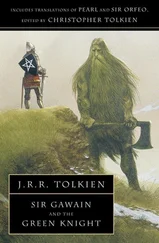The Southampton team then went on to Rio, where again they won, with Alf captaining the side for the first time when Bill Rochford was rested. They were installed in the Luxor hotel overlooking Copacabana beach, but their stringent training regime prevented them enjoying too much of the local life. ‘Brazil had the most beautiful women I have ever seen in my life,’ says Bill Ellerington. ‘They used to parade up and down the beach, though they always had one or two elderly women with them. And by the time we finished playing and training, we were too tired to think about anything like that.’ The last two games of the tour ended in a draw and a defeat, before the players took the plane, rather than the boat, back to Southampton.
The tour had been a revelation for Alf. On one hand it had enhanced his footballing vision, encouraging him to think in a far more original way about tactics and his own role. He now saw, he wrote, that ‘a defender’s job was also to make goals as well as stopping them’. But on the other it had given him a negative opinion of Latin American crowds, administration and the press. He was astounded, for instance, when walking on to the pitch for the match at Sao Paulo that ‘radio commentators, dragging microphones on to the field, rushed up to us and demanded – yes, demanded! – our views’. It was the start of a not very beautiful relationship with the world’s media.
At the start of the 1948-49 season, Alf Ramsey’s progress seemed assured. He was a key member of the Southampton side, sometime captain, and an England B international. His growing confidence was reflected when he was called up for another representative game, on this occasion playing for English Football League XI against an Irish League XI at Anfield in September. His room-mate in that game was another debutant, the Newcastle striker Jackie Milburn – cousin of the Charlton brothers who were to play such a central role in Alf’s managerial career. Milburn was struck by the intensity of his colleague, who wanted to sit up late into the night talking tactics. ‘Alf was never a great one for small talk when he was with England parties,’ said Milburn later. ‘Football was his one subject of conversation. He was always a pepper-and-salt man, working out moves and analysing formations with the cruet table.’
The English League XI, which won 5-1, was captained by none other than Stanley Matthews, the ascetic, dazzling Blackpool winger, who, since 1932, had been captivating spectators with his formidable powers of dribbling, swerving and acceleration. A cold, emotionally taut man, whose rigorous training regime included a weekly fast on Mondays, he was not universally loved by his professionals; many of them felt that his trickery on the wing did more to please the crowds than win games for his side. In an amazingly harsh passage about his team-mate, England captain Billy Wright wrote in 1953 that Matthews ‘made most of us foam at the mouth because he held up the line and allowed opposing defenders to cover up’. He went on to attack Matthews’ brand of ‘slow-motion football’, adding that Matthews, ‘although giving joy to thousands of fans, was sometimes nothing but a pain in the neck to colleagues who waited in vain for the pass that never came.’ Coming from someone who failed dismally as a soccer manager because he was ‘too nice’, those words of Wright’s could hardly be more brutal.
Alf, however, developed a good understanding with Matthews during the English League game. And he soon had the chance to play alongside Matthews again, when in December 1948 he was called up to the full England side, after the long-serving Arsenal right-back Laurie Scott suffered a knee injury. The match took place at Highbury on 2 December and resulted in an easy 6-0 win for England over Switzerland. Alf refused to be overawed on his debut. During the match Alf made a pass to Matthews and then, to the astonishment and amusement of the rest of the English League team, shouted ‘Hold it, Stanley!’ at the great man, who had never been used to taking orders from anyone, least of all a young defender with only one full season behind him. The words from Alf were instinctive, lacking in any self-consciousness and were born of years of practice with the Saints’ right-winger Eric Day. Yet they smacked of youthful arrogance, something compounded when Alf wrote in Talking Football: ‘To my surprise, Stanley Matthews played football as I believed it should be played between winger and full-back. Stanley took up position perfectly to take my clearances.’ To his detractors, that remark was a symbol of Ramsey’s arrogance. ‘It was rather like a new racing driver out for a spin with Jackie Stewart telling him to change gear at the next bend,’ claimed Max Marquis, always on the lookout for anything to drag down Alf. But to Ramsey himself, he was just being realistic; he had found another player who preferred thoughtful, constructive defence rather than the meaty hump into the crowd. ‘I was in a better position than Stanley to see the situation so naturally I advised him,’ Alf explained to England’s captain Billy Wright. Indeed, Matthews soon became an admirer of Ramsey. In an article in 1950, he praised the way Alf relied ‘on positional play, interception and brainwork to beat his winger. I know which type I would rather face. The man who rushes the tackles is easier to slip than the calculating opponent who forces you to make mistakes.’
What was so impressive about Alf on his debut was his calmness, even under severe pressure. ‘Ramsey looked as suave and cool as a city businessman – particularly when he headed from under the bar in the second minute,’ thought the Daily Mail. It was a view shared by Alf’s captain Billy Wright:
I must admit I found it a little disconcerting at first to have a full-back behind me who was always as cool as an ice-soda. Ramsey’s expressed aim was to play constructive football: I soon learned that nothing could disturb this footballer with the perfect balance and poise, no situation, however desperate, could force him into abandoning his immaculate style.
But then, just as Ramsey’s fortunes appeared to be taking off, disaster struck. On 15 January 1949, Southampton visited Home Park to play a friendly against Plymouth, both teams having been knocked out of the FA Cup. ‘One minute before half-time, I slipped on the damp turf when going into a tackle with Paddy Blatchford, the Plymouth Argyle outside left. A terrible searing pain went through my left-knee…the most agonizing I have ever experienced,’ wrote Alf. In fact, as he was carried from the field, Ramsey feared that his professional career was over. Fortunately, an X-ray showed that he only had badly strained ligaments and should be able to play again before the end of the season.
Whether he would return to the Southampton side was another matter. For Alf’s position was immediately filled to great effect by Bill Ellerington, who had waited patiently in the reserves after recovering from his bout of pneumonia, playing just 12 League games in the previous two years. Just as Alf had done in January 1947, so Bill now seized his chance, producing such solid performances at the back that he was to win two England caps before the end of the season. But Ellerington’s success spelt problems for Ramsey, particularly because Southampton were pressing hard for promotion. In March 1949, while Alf was still limping badly, manager Bill Dodgin came up to him at the Dell and warned him that he was ‘going to find it very hard’ to regain his place in the first team. Alf was appalled at this comment, regarding it as a calculated insult. The sensitive side of his nature led him to brood obsessively about it, as he sunk into a period of mental anguish. ‘The world did indeed appear a dark and unfriendly place. For one fleeting moment I seriously contemplated quitting football,’ said Ramsey later.
Читать дальше












